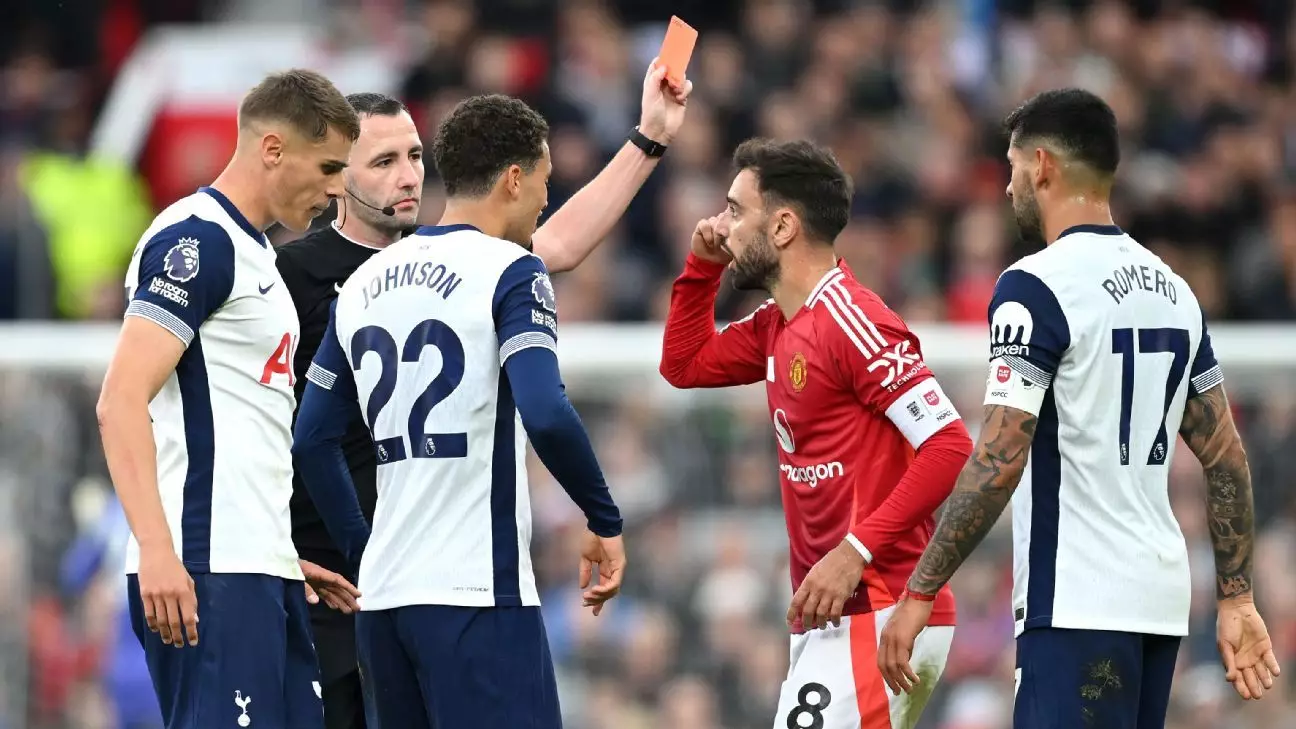In a pivotal moment during Manchester United’s 3-0 loss to Tottenham, Bruno Fernandes found himself at the center of controversy following a challenge on James Maddison. The incident occurred in the first half and was significant enough for referee Chris Kavanagh to issue a straight red card, enforced with the backing of VAR. Fernandes, the United captain, seemed to misstep as he attempted to impede Maddison, and instead caught him with his leg. This decision was met with immediate criticism and has since ignited discussions regarding officiating standards in high-stakes matches.
Manchester United swiftly responded to the red card, launching an appeal with the hope of overturning what many considered an unjust dismissal. By Monday, the club’s determination paid off; the FA confirmed the overturning of Fernandes’ red card, allowing him to avoid suspension for upcoming matches. The FA’s statement emphasized the successful claim of wrongful dismissal, indicating a recognition of the contentious nature of the original decision.
This outcome is significant not just for Fernandes, but also for the team’s performance in the Premier League. With fixtures against Aston Villa, Brentford, and West Ham on the horizon, having Fernandes available could prove critical for United’s quest for points in the league.
From a tactical standpoint, United’s manager Erik ten Hag expressed his belief that the decision to dismiss Fernandes altered the dynamics of the match against Tottenham. Even though Spurs had been performing strongly up until that point, the loss of their captain was a blow to United’s morale and strategy. Ten Hag’s reflections underscore the considerable psychological and tactical implications of red cards in football, particularly when the teams are closely matched.
Fernandes himself voiced his discontent with the red card, highlighting that even Maddison had reportedly indicated that the challenge did not warrant such a severe punishment. His reaction illustrates the frustrations permeating the locker rooms around officiating inconsistencies. He urged a reevaluation of incidents that provoke red cards, suggesting that many similar challenges go unpunished. This raises pertinent questions about the criteria used by officials and the VAR system, reiterating a need for clearer guidelines on what constitutes a serious foul.
The overturning of Bruno Fernandes’ red card is more than just a victory for Manchester United; it serves as a bellwether for the ongoing discourse regarding refereeing standards in football. As the club prepares for their upcoming matches, the team can breathe a sigh of relief knowing their captain will still be on the pitch. This incident, however, amplifies the call for greater consistency in officiating, ensuring that similar cases are scrutinized to foster a fair and competitive environment in football. The spotlight firmly remains on the powers that govern the game as they strive to maintain integrity amidst a highly scrutinized sport.

